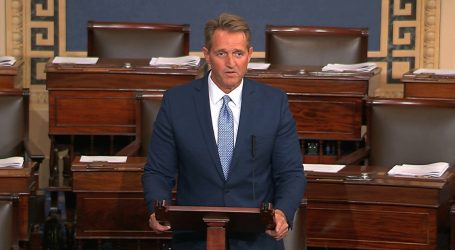Biden Gives Relief to Undocumented Spouses of US Citizens
President Joe Biden gives remarks on the southern border. Aaron Schwartz/Sipa USA/AP
Fight disinformation: Sign up for the free Mother Jones Daily newsletter and follow the news that matters.
On Tuesday, the Biden administration announced another major immigration executive action. This time it wasn’t a border crackdown, but a new policy to offer legal status to hundreds of thousands of undocumented immigrants who are married to US citizens and have lived in the United States for an extended period of time. The proposal is the largest immigration relief since President Barack Obama created the Deferred Action for Childhood Arrivals (DACA) program in 2012 to protect from deportation the so-called Dreamers, undocumented youth brought to the United States as children.
The policy, known as “Parole in Place,” would grant work permits and relief from deportation to hundreds of thousands of spouses of Americans if they have been in the country for at least 10 years. It would also make it easier for those who entered the country without documents to obtain legal permanent residency and future citizenship by allowing them to adjust status without having to leave the country, in many cases for several years.
There are an estimated 1.1 million undocumented immigrants married to US citizens in the United States, but only about 500,000 spouses and 50,000 children younger than 21 are expected to actually be affected by the plan. Those eligible for the process have been in the United States on average for 23 years, according to the White House.
The announced plan also streamlines a waiver process for DACA recipients and Dreamers to obtain work visas if they have a job offer from a US employer in a high-skilled field.
President Biden is expected to formally announce the new measure at an event on Tuesday to celebrate the anniversary of DACA, which was created 12 years ago by the Obama administration.
With just five months until the 2024 presidential election, Biden is walking a fine line on immigration, a key issue for voters. Earlier this month, the administration announced a partial ban on asylum that has already been challenged by the American Civil Liberties Union (ACLU) and other immigrant rights groups.
His new executive action on spouses has already sparked opposition from Republicans and anti-immigrant hardliners. Sen. James Lankford (R-Okla.), who led a failed bipartisan senate border deal, called the proposal “amnesty.” Trump’s former senior adviser Stephen Miller said it was “an impeachable offense.”
Despite the hope of the new measures announced, the very future of DACA remains uncertain, as I reported earlier this month.
The common-sense vision for a permanent solution for Dreamers has gone from a no-brainer to an afterthought. It used to be the case that legislative pushes for stricter border enforcement measures would not even merit consideration unless they were tied to relief for Dreamers (to say nothing of the millions of other long-time undocumented people often also included in proposals). Legislation could fail to pass, as it repeatedly did. But that signaling of support—even if in sentiment alone—made clear where Dreamers stood. Now, that tacit pact has been broken, and with little ceremony.
“Parole in Place” is already used to protect immediate relatives of US military members. Pro-immigrant groups have been increasing calls on the Biden administration to use executive authority to extend that discretionary program to more long-term undocumented immigrants.
“Today marks a historic milestone in improving the lives of hundreds of thousands of Dreamers and American families with undocumented members,” Todd Schulte, president of FWD.us, which advocates for immigration reform, said in a statement. “This is a tremendous step forward from President Biden, and a much-needed fulfillment of the promise to keep families together.”




